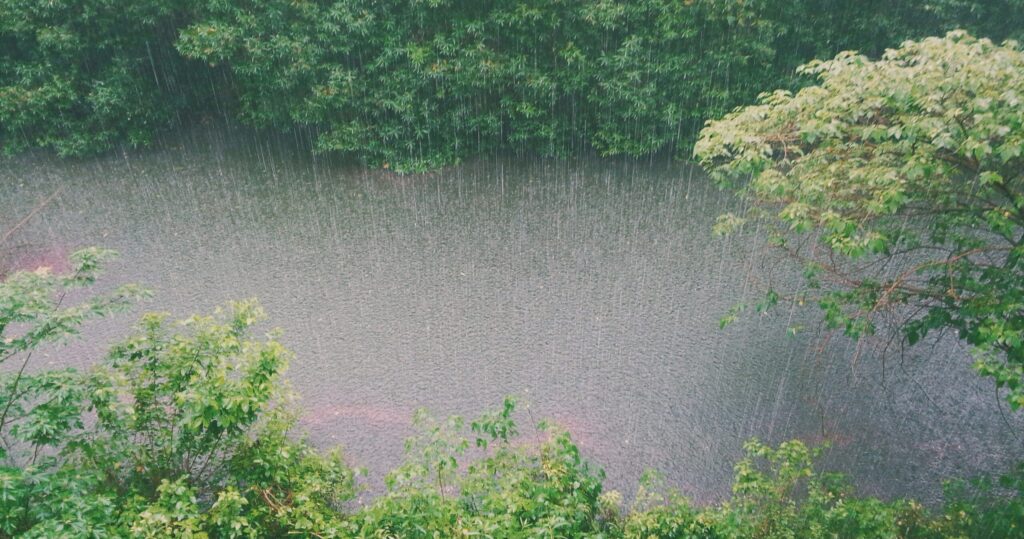Climate baloney is not merely an unappetizing item in the mental fridge whose best-before date requires inspection. It has real-life consequences, because it diverts time, money and energy both mental and physical away from other things to ones that, in Gertrude Stein’s acid phrase, would be interesting if true. For instance the U.S. National Park Service has decided the contents are spoiling due to heat and they’re going to have to chuck a bunch of it. Of course it may just be garnish for decorative purposes. But it’s also possible that they believe what they say and if so, it won’t be healthy.
Quoting itself, the New York Times asserts without stooping to substantiate it that “For more than a century, the core mission of the National Park Service has been preserving the natural heritage of the United States. But now, as the planet warms, transforming ecosystems, the agency is conceding that its traditional goal of absolute conservation is no longer viable in many cases.” Which ecosystems specifically have been transformed and by how much warming we feel inclined to wonder, given that the putative warming since Victorian times is just over 1°C (since 1880) according to NASA and just two-thirds of a degree since 1975. If that kind of trivial change could transform ecosystems the planet would be a wasteland. But let us not be detained by mere facts.
As you can imagine, when it comes to America’s beloved parks going up in flames or smoke or dust or something, there are a lot of hurt feelings involved. “For a profession long tied to maintaining historical precedents, the change is brutal, said Gregor W. Schuurman, a scientist with the climate change response program at the Park Service who helped to write the new guidance. ‘It’s bargaining. Nobody wants to do this. We all got in this game, as the Park Service mission says, to “conserve unimpaired,” But if you can’t do that in the way you thought, you have to see what you can do. There’s often more flexibility there than one imagines.’” Well, yes. Because ecosystems are not being transformed; if NASA takes its thumb off the scale, the 1930s were no cooler than today and may have been warmer.
Also because, of course, these documents are not practical guides but apocalyptic rants. “The new research and guidance… focus on how to plan for worst-case scenarios, decide what species and landscapes to prioritize, and how to assess the risk of relocating those that can’t survive otherwise”. And these scenarios are suitably bleak. “In the United States Southwest, for example, research suggests that, in the event of wildfires, up to 30 percent of forestland might never grow back because global warming favors shrubs or grasslands in their ranges.” But when we hear “worst-case scenario” we start scanning the smoke-filled horizon for vast herds of RCP8.5.
On this occasion we were unable to sight them. Because the actual document is very coy about where it gets its nightmares. And considerably more restrained in its projections than reading newspapers might lead you to suppose. Because there it’s going to get ugly fast. Inside the computers. Except not fast.
According to the Times, “’The models show that of the 10 most common tree species in the park, nine of them are predicted to lose habitat over the next 80 years, either declining a lot or disappearing entirely,’ Dr. [ecologist and science coordinator at Acadia National Park Abraham] Miller-Rushing said. That includes red spruce, which make up 40 percent of the trees in the park. If those disappear, much of the forest floor would suddenly open to the invasive shrubs, which would fill the open space faster than any manual effort could stop them. Right now, park managers are still finding new red spruce saplings around the park, which is a good sign. But things could change very quickly — much sooner than 80 years from now.”
Yeah. And monkeys could fly out of my armpit. In a worst-case scenario. Much sooner than 80 years from now. Also, the actual NFS document doesn’t mention red spruce. But as usual these things are details.
The key thing is, we’re all going to die. And for good measure, Trump stinks. “The team behind the report kept a low profile during the Trump Administration, when the Park Service was at the center of frequent political battles. In 2018, for example, managers tried to delete humanity’s role in climate change from a report on sea-level rise. The day before President Biden’s inauguration, they began publishing their papers, which were years in the making.”



Reading this, I’m reminded of Jennifer Fielder’s talk at the Heartland Institute, a couple of years ago...
https://youtu.be/TJYudILc4wk
Excellent video, David!
Yea verily brethren, the world is heating up and we shall all be consumed in its flames! Repent ye for the day of judgement is at hand!!
I don't want to be a party pooper here, but according to the actual measured data the global average temperature was below the 30-year average for the years 2015 to 2019, and was exactly equal to the 30-year average for 2020 (http://temperature.global/). If the world is indeed heating up, can I ask which world you're referring to?
I clicked on one of the links in this article and began reading some of the articles on that website. It's madness that people think that electric cars are going to save the world... and solar power, and wind power! Absolutely no thought is given as to how all the materials required for their construction is going to be mined and produced. We are living through insane times.
I agree: excellent video.